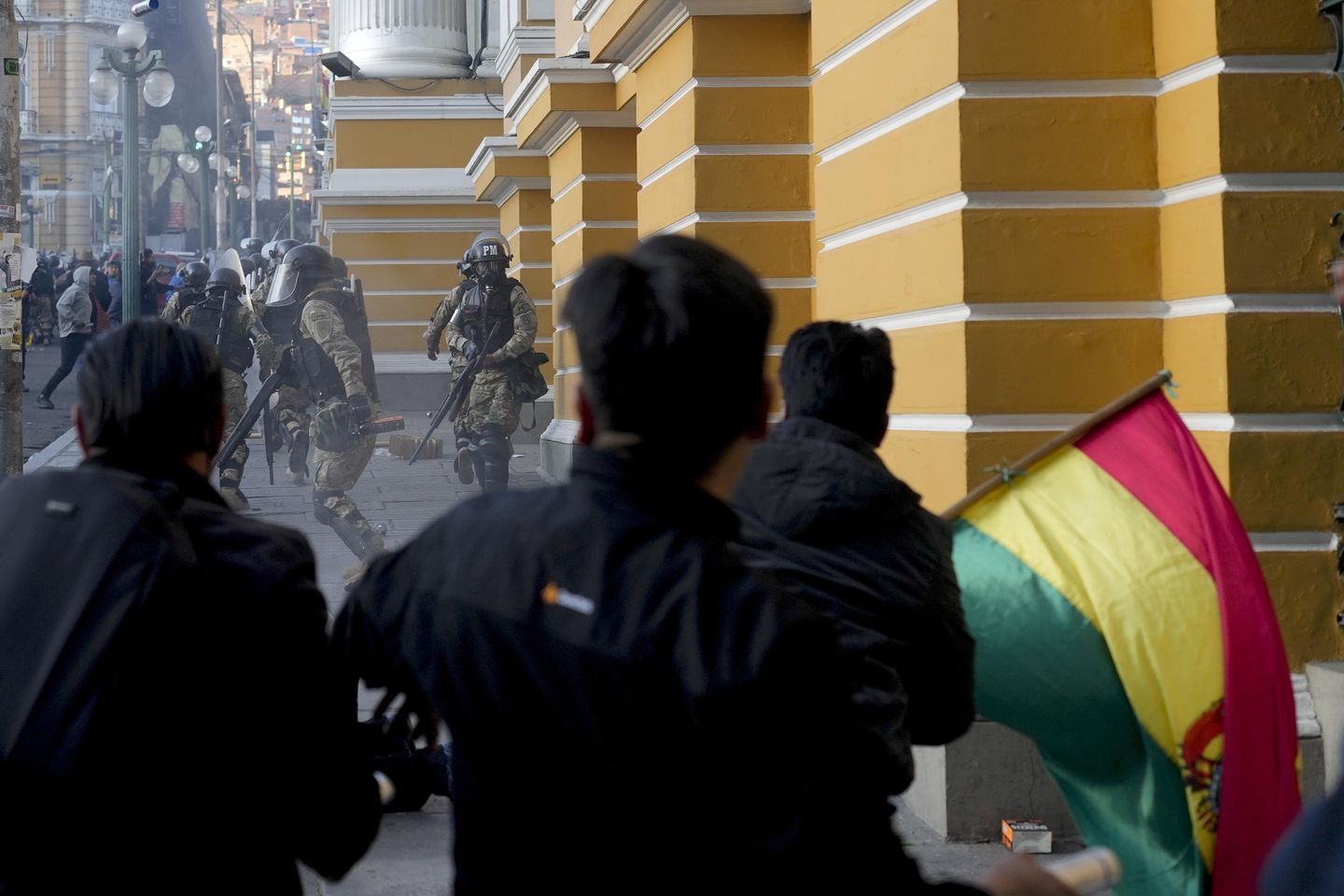The tumultuous situation in Bolivia reached a boiling point on Wednesday when armored vehicles, led by a top general promising to “restore democracy,” stormed the doors of the government palace in what President Evo Morales referred to as a coup attempt. The dramatic events unfolded in the midst of a political battle and economic crisis that has plagued the South American nation in recent months.
The images of the armored vehicles crashing through the doors of the government palace sent shockwaves throughout Bolivia and the international community. The scene was reminiscent of a military coup, a chilling reminder of the country’s turbulent history of political instability.
President Morales, who has been in power since 2006, condemned the actions of the military and declared that Bolivia was facing a coup attempt. He called on the international community to support his government and uphold democracy in the face of what he described as an unlawful seizure of power.
The events in Bolivia have deepened the political divide in the country, with supporters of President Morales taking to the streets to protest against what they see as an attempt to overthrow the government. On the other hand, opposition leaders and anti-government protesters have welcomed the military’s intervention, viewing it as a necessary step to restore democracy and address the country’s economic woes.
The crisis in Bolivia has been brewing for months, with widespread protests and clashes between supporters and opponents of President Morales. The president’s decision to run for a fourth term in office in the 2019 election sparked accusations of electoral fraud and triggered a wave of protests that engulfed the country.
The Organization of American States (OAS) conducted an audit of the election results and found evidence of irregularities, prompting calls for a new election. President Morales initially agreed to hold a new vote but later resigned under pressure from the military and opposition groups.
In the power vacuum that followed Morales’ resignation, a top general, Williams Kaliman, emerged as a key figure in the political drama. Kaliman, who had previously served as the commander of the Bolivian armed forces, declared that he would lead a transitional government to oversee new elections and “restore democracy” in the country.
The sudden and unexpected intervention of the military in Bolivia’s political crisis has raised concerns about the country’s democratic institutions and the rule of law. Critics of the military’s actions have warned that the use of force to remove a democratically elected president sets a dangerous precedent and undermines the country’s fragile democracy.
The international community has also expressed alarm at the developments in Bolivia, with several countries condemning the military’s intervention and calling for a peaceful resolution to the crisis. The United Nations and the European Union have called for dialogue and respect for the rule of law to prevent further escalation of the situation.
As the political turmoil in Bolivia continues to unfold, the country is also grappling with a deepening economic crisis. The Bolivian economy has been struggling in recent years, with soaring inflation, rising unemployment, and a sharp decline in foreign investment.
The uncertainty and instability caused by the political crisis have only exacerbated the economic challenges facing Bolivia. Businesses have been forced to close, foreign investors have pulled out of the country, and ordinary citizens are struggling to make ends meet as prices skyrocket and jobs become scarce.
The future of Bolivia remains uncertain as the country grapples with the aftermath of the military’s intervention and the ongoing political crisis. The need for a peaceful and democratic solution to the country’s problems has never been more urgent, as the people of Bolivia look to their leaders to steer the country out of this turbulent period and towards a more stable and prosperous future.









